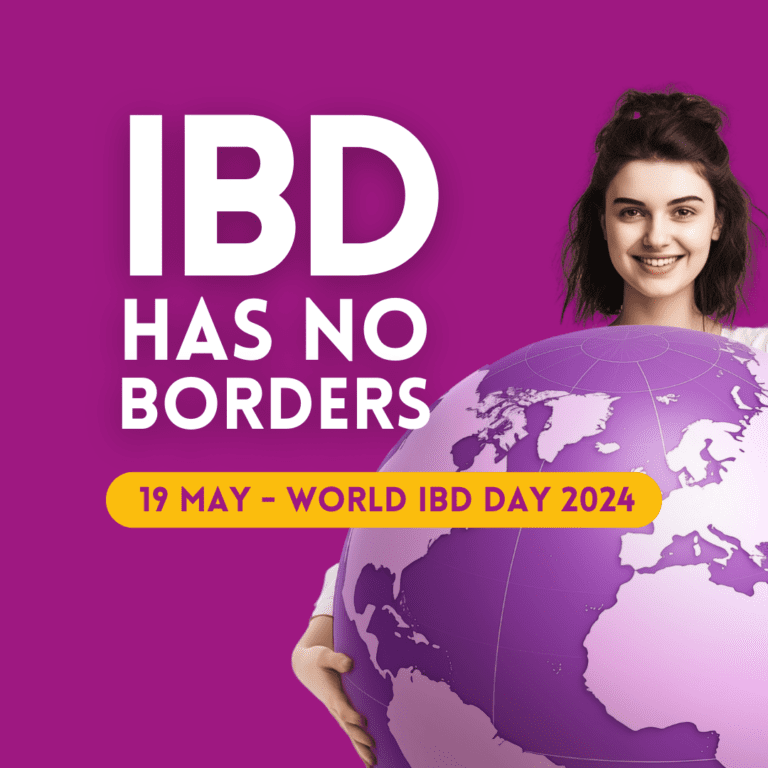Feeling the impact of Crohn’s Disease can be daunting, leaving both patients and their support networks feeling lost amidst the challenges it presents. From the relentless symptoms to the maze of treatment options, the journey with inflammatory bowel disease (IBD) is anything but straightforward. That’s where World IBD Day comes in – a beacon of hope and unity for those navigating this complex condition. In this guide, we uncover the significance of this global event, exploring its themes and initiatives designed to raise awareness and provide support. Join us as we delve into the empowering message of “IBD Has No Borders,” offering insights to help you navigate your journey with confidence and resilience.
Celebrating World IBD Day: Understanding the Impact of Inflammatory Bowel Disease
Living with Crohn’s Disease has its challenges, but it’s essential to remember that you’re not alone. World IBD Day is a time for us to come together, raise awareness, and support one another through our shared journey with inflammatory bowel disease (IBD).
What day is IBD Awareness Day?
World IBD Day is celebrated annually on 19th May. It’s a day dedicated to increasing awareness about Crohn’s disease, ulcerative colitis, and other forms of IBD. On this day, communities worldwide unite to educate others, advocate for better care, and show solidarity with those affected by these chronic conditions.
What is the colour for World IBD Day?
The symbolic colour for World IBD Day is purple. Purple represents the bravery and resilience of individuals living with IBD, as well as the hope for a future free from the burdens of this disease. Many individuals and organizations use purple ribbons, clothing, and social media profiles to show their support and raise awareness on World IBD Day.
Unveiling the Theme for 2024: “IBD Has No Borders”
The theme for World IBD Day 2024, “IBD Has No Borders,” underscores the universal impact of inflammatory bowel disease. Regardless of geographic location, ethnicity, or socioeconomic status, IBD affects millions of lives worldwide. This theme emphasises the need for global collaboration and solidarity in addressing the challenges faced by the IBD community.
The Significance of the Theme
“Irritable bowel disease has no borders.” It’s a statement that resonates deeply with me and countless others living with Crohn’s disease. This theme highlights the interconnectedness of our experiences, regardless of where we are in the world. Whether we’re navigating healthcare systems, accessing treatment options, or advocating for better resources, we share a common bond in our journey with IBD.
Round Table Discussion: “Uniting for Access to IBD Care”
One initiative spearheaded by the European Federation of Crohn’s & Ulcerative Colitis Associations (EFCCA) is the Round Table discussion on “Uniting for Access to IBD Care.” This international forum brings together patients, healthcare professionals, policymakers, and industry representatives to address the disparities in accessing quality care for IBD worldwide.
Empowering Action Through Social Media
EFCCA’s social media campaign, “IBD Has No Borders,” harnesses the power of storytelling to amplify the voices of individuals living with IBD. By sharing our personal experiences, challenges, and triumphs, we can raise awareness, foster empathy, and advocate for improved access to care. I encourage you to join the conversation and make your voice heard on World IBD Day and beyond.
Understanding Inflammatory Bowel Disease
Living with Crohn’s disease, I understand the uncertainty and fear that can accompany a diagnosis. However, it’s essential to arm yourself with knowledge and support to navigate this journey with confidence and resilience.
Does IBD affect life expectancy?
One common concern among individuals newly diagnosed with IBD is its impact on life expectancy. While living with a chronic condition like Crohn’s disease presents its challenges, it’s essential to focus on proactive management and lifestyle modifications to optimize your health and well-being.
Is IBD a lifetime disease?
Yes, inflammatory bowel disease is a chronic condition that requires lifelong management. However, with advancements in treatment options and ongoing support from healthcare professionals, many individuals with IBD lead fulfilling and productive lives. It’s crucial to prioritize self-care, adhere to your treatment plan, and seek support from your healthcare team and loved ones.
What are the 3 types of IBD?
Inflammatory bowel disease encompasses three main types: Crohn’s disease, ulcerative colitis, and indeterminate colitis. While each condition shares similarities in symptoms and treatment approaches, they also have distinct characteristics:
- Crohn’s disease: Can affect any part of the digestive tract, from the mouth to the anus. It often causes inflammation in patches, leading to symptoms such as abdominal pain, diarrhea, and fatigue.
- Ulcerative colitis: Primarily affects the colon and rectum, leading to inflammation and ulcers in the lining of the digestive tract. Common symptoms include rectal bleeding, urgency, and persistent diarrhea.
- Indeterminate colitis: A diagnosis given when it’s challenging to distinguish between Crohn’s disease and ulcerative colitis based on clinical and pathological criteria.
Frequently Asked Questions About World IBD Day
World IBD Day is celebrated annually on 19th May.
The symbolic colour for World IBD Day is purple.
As someone living with Crohn’s disease, I understand the importance of raising awareness and supporting others in our community. Together, we can make a difference and advocate for better care and resources for individuals living with inflammatory bowel disease. Join me in spreading awareness this World IBD Day and beyond.





